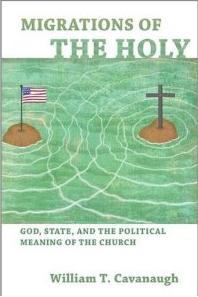Howard Zinn has taught us, wherever we fall on the political spectrum, that to  understand history we must read it from the bottom up. If you want to learn about the French Revolution, reading M. Robespierre’s political writings won’t give you the whole picture, and may mislead you altogether. If we apply this method to the current Libyan conflict, we will focus not on President Obama’s speech last night nor on billionaire maniac Qaddafi, but on Libyans on the ground.
understand history we must read it from the bottom up. If you want to learn about the French Revolution, reading M. Robespierre’s political writings won’t give you the whole picture, and may mislead you altogether. If we apply this method to the current Libyan conflict, we will focus not on President Obama’s speech last night nor on billionaire maniac Qaddafi, but on Libyans on the ground.
Obama appealed in his speech to the image of civilians being indiscriminately killed, and to a leader who has “turned on his own people.” The west is ostensibly going to war (or engaging in “police action”) to stop this violence against Libyans. Of course, this says nothing of the Libyans who will be killed in the process of stopping the violence.
Augustine wrote in City of God that peace is more fundamental than violence. We can tell this is so because very few people, if any, go to war because they enjoy war. Rather, they go to war to seek peace, though on their own terms. In the Libyan situation you have three groups who each want peace on their own terms. Qaddafi wants a sustained rule, and is desperate enough to bomb his own cities to cling to that rule. The protesters view Qaddafi’s rule as a form of sustained violence, and are willing to revolt, violently if need be, to overthrow that violence and install a truer peace.
But what about Obama and the UN? What kind of peace do they seek? According to neocon columnist George Weigel, Obama represents “How Democrats View the World.” In particular, for Obama
Conflict is an aberration, and if there is conflict between nations or blocks of nations, or within nations, it must be because of some palpable injustice, the remedying of which will assuage the conflict in question and restore the natural order, which is peace. The idea that conflict results from the inevitable clash of interests and values in a plural world — which political thinkers from Augustine to Acheson assumed — is in fact not true. Moreover, the insights of psychology and psychiatry are of special utility in understanding the character of political conflict.
If Weigel’s observation is correct, then Obama, even in defending the Libyan rebels, is in truth validating Qaddafi’s rule over-against the claims of the protesters. Perhaps Weigel is wrong, or perhaps the Obama administration is deeply philosophically incoherent. One would not be shocked at either occurrence.
But there is another Augustinian observation to be made here. The Libyan revolt is part of an overall trajectory of the Arab world right now, where revolutions are also being attempted in Syria, Yemen, Bahrain, Egypt and Jordan. Some of these are wholly nonviolent, as in Egypt, while others, such as in Yemen, look more like terrorism than revolution. But taken together they represent what Gene Sharp calls “the science of people power.” He says of Egypt’s revolution that it shows
That it can be done. In past years, there have been a lot of misconceptions about nonviolent action. People used to think that it was very weak and that only the violence of war could remove extreme dictators. Here was another example that shows this myth isn’t true. If people are disciplined and courageous, they can do it.
In particular, Sharp observes that “When people lose their fear of an oppressor’s regime, the oppressor is in deep trouble.” Qaddafi saw how Mubarak was deposed, saw the movements all across the Arab world, and sought to reinstill fear. Could he and would he have done it? Certainly. And would this have cowed the population back into line with the regime? Perhaps. Look at Iran a year and a half back.
But if the Libyan rebels and their transitional government could weather the violence, as the nonviolent Egyptian rebels did in Tarhir Square, the Qaddafi regime would unmask both their own unrighteousness and the truth of the protesters’ claims. This is how Augustine treats Romans 13, which says the state will praise those who do good. In Augustine’s view of the state, a proper state will praise those who do good by rewarding them, but from a corrupt state the highest form of praise is to be destroyed for doing right.
From the perspective of the protesters, then, the worst thing that can happen is U.S. led intervention on their behalf. From a pragmatic standpoint, the options seem to be a coin-flip between a stalemate resulting in Qadaffi remaining in power and a military overthrow of Qadaffi resulting in a government established not by Libyans but by the UN Security Council. Theologically, the Libyan protesters have lost the opportunity to, like the Egyptians, “go with the grain of the universe” and instead have to live caught in a war that is no longer truly about them.






